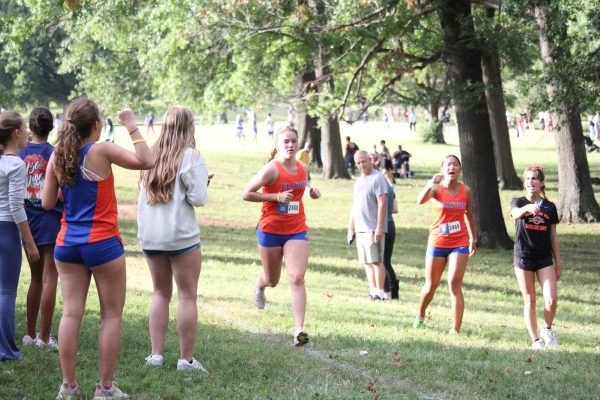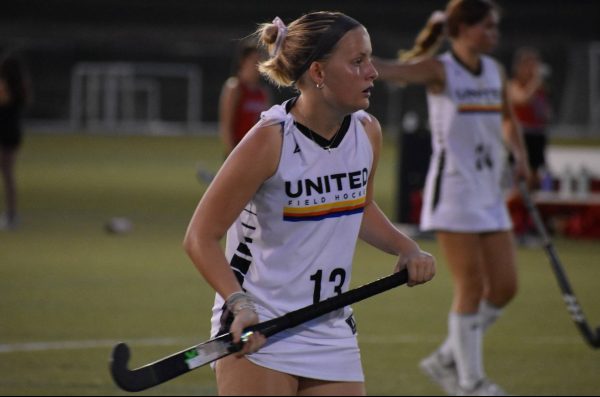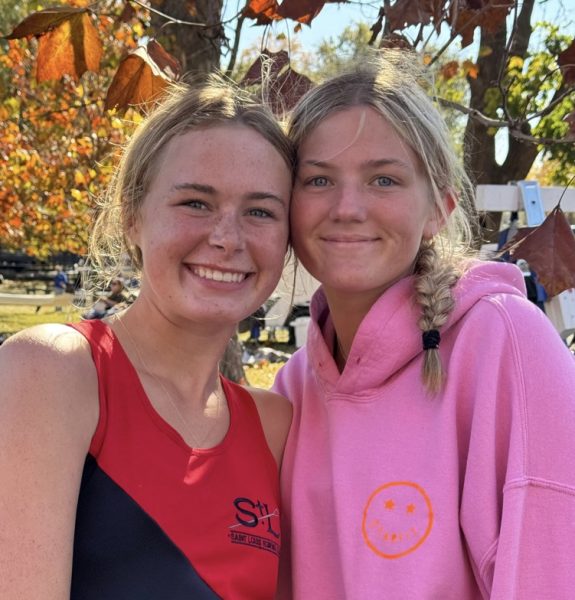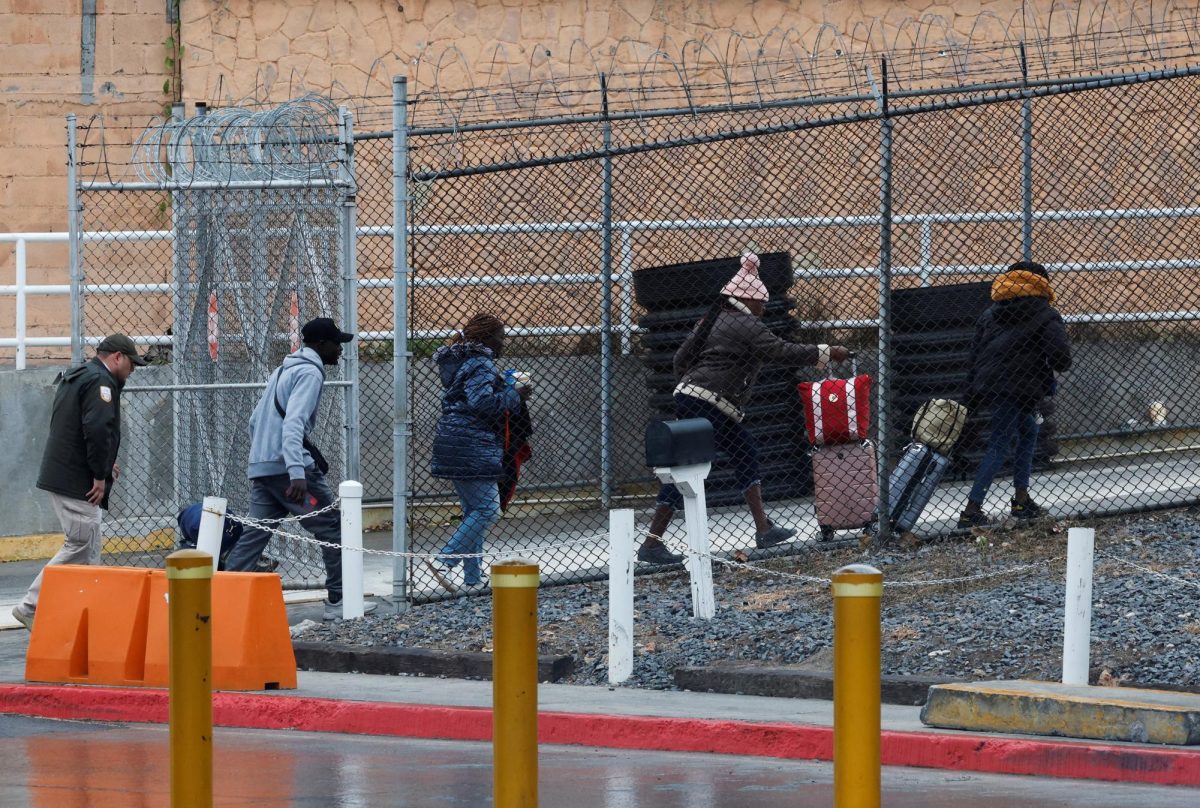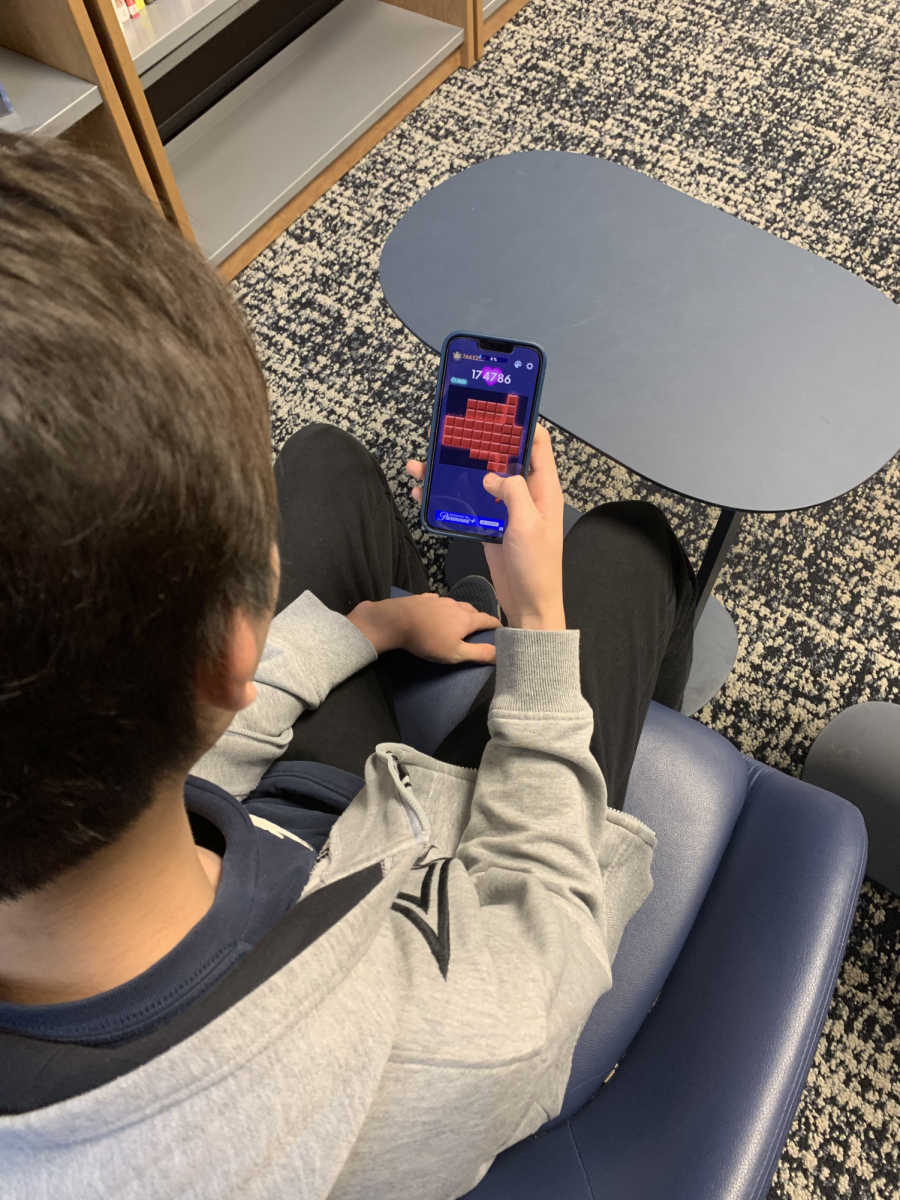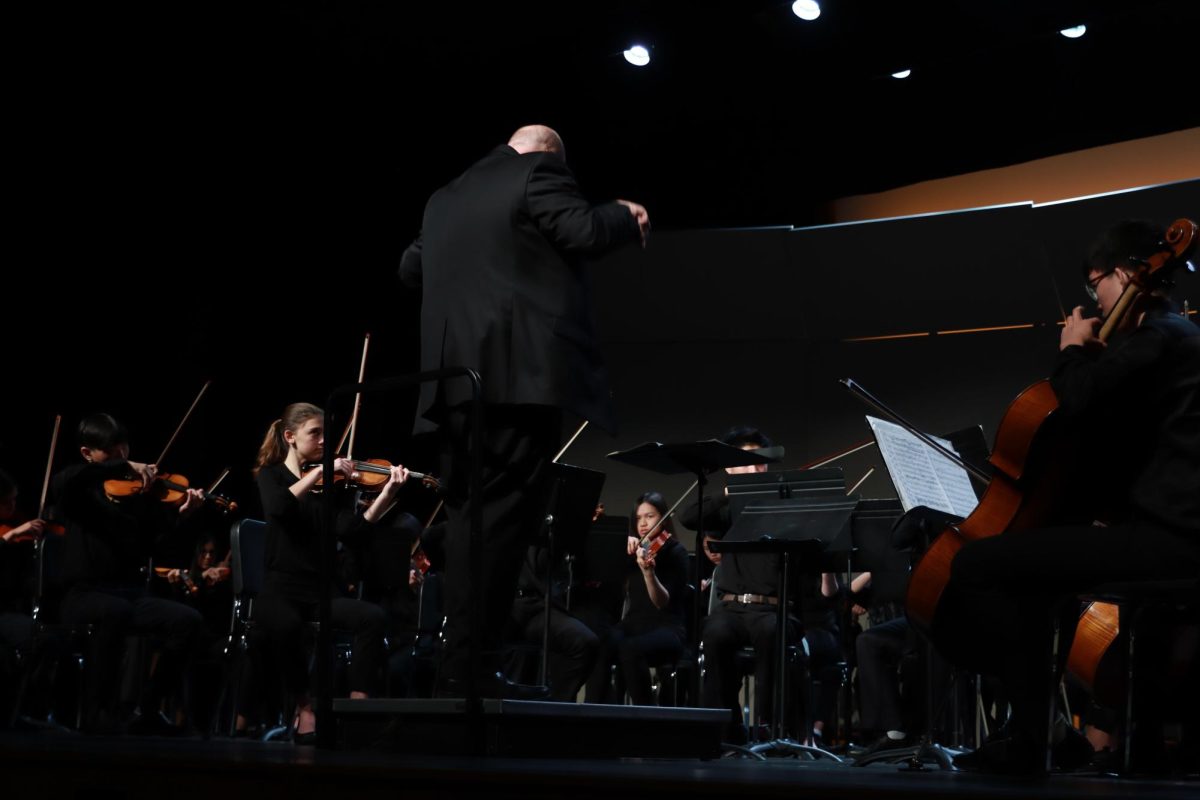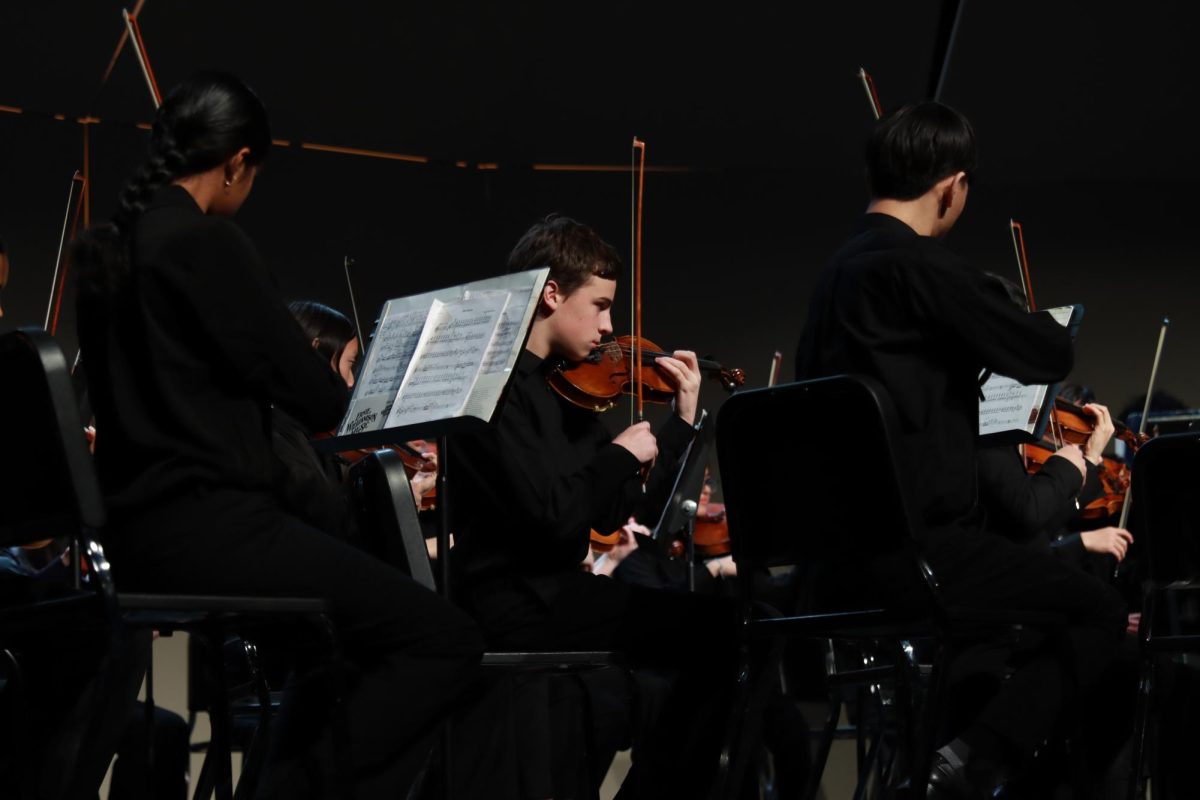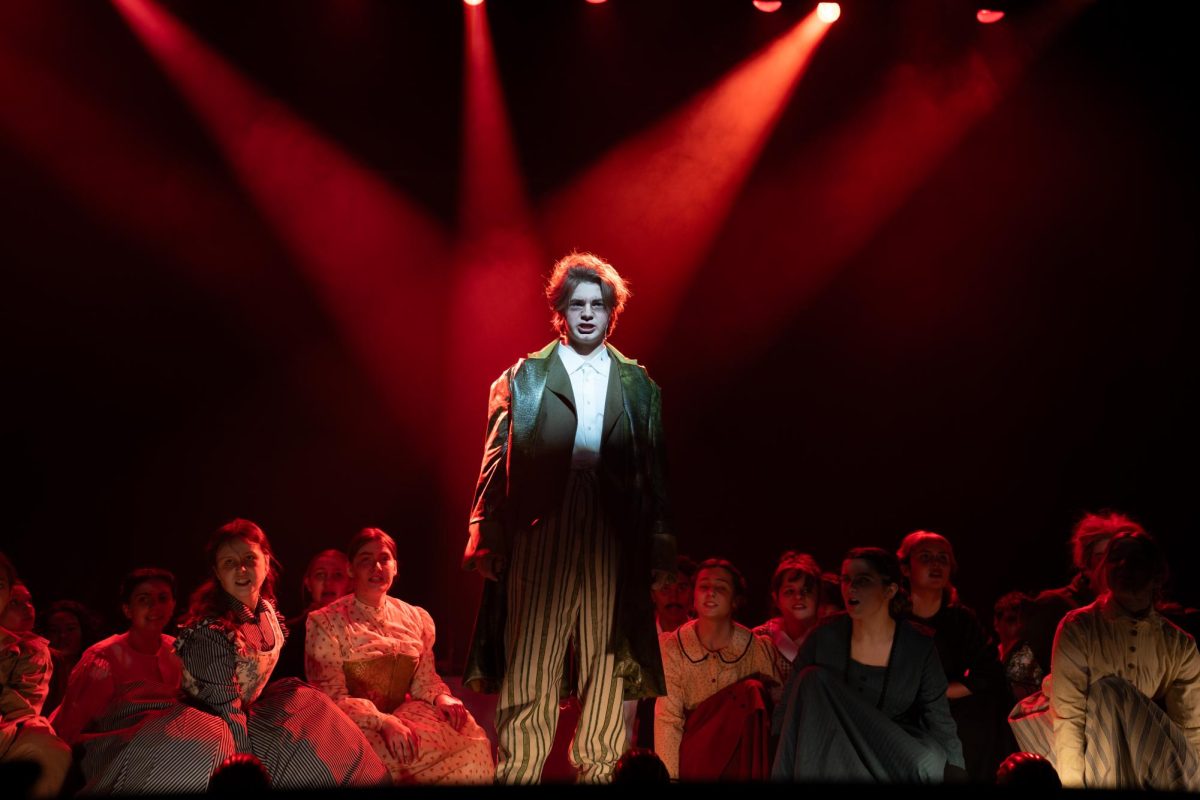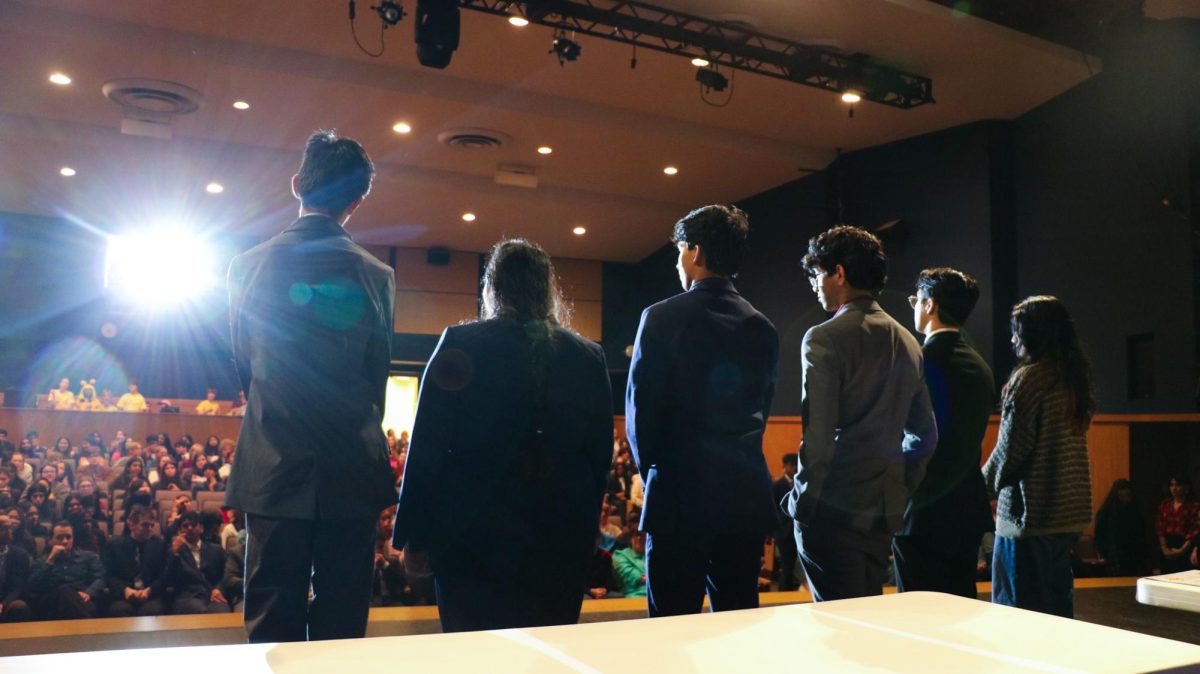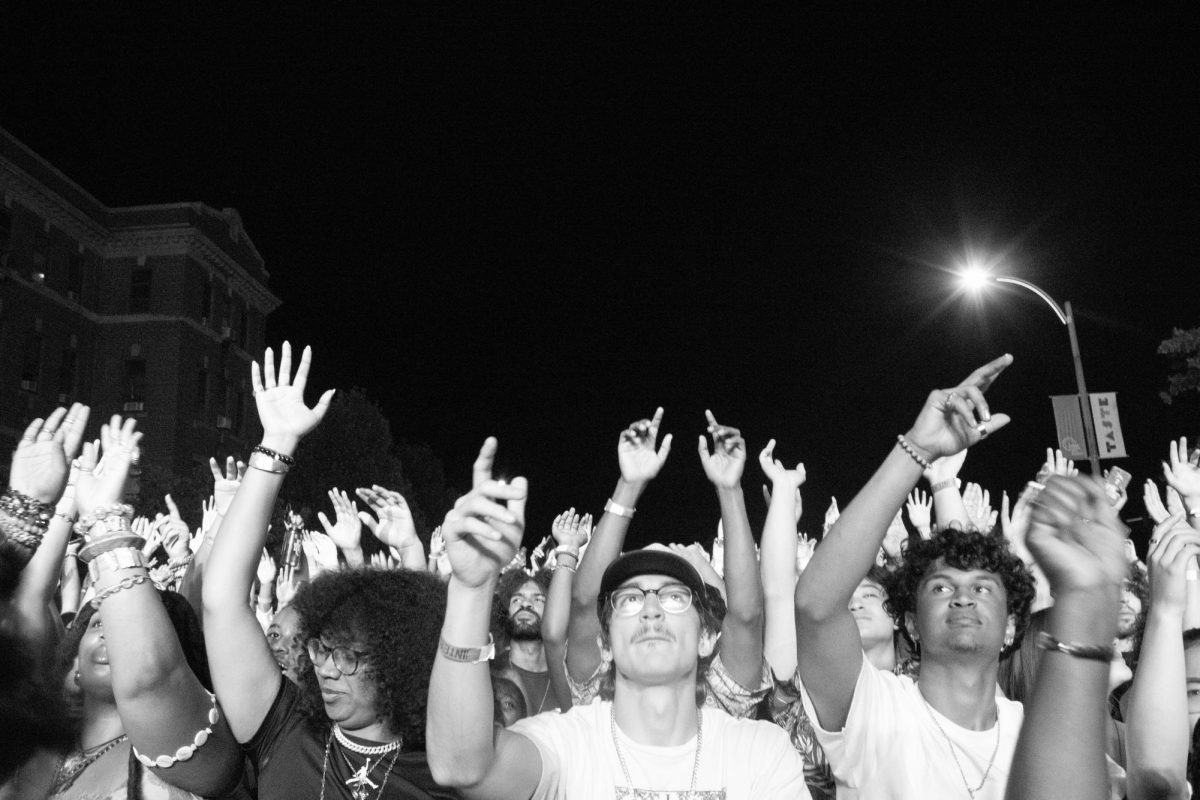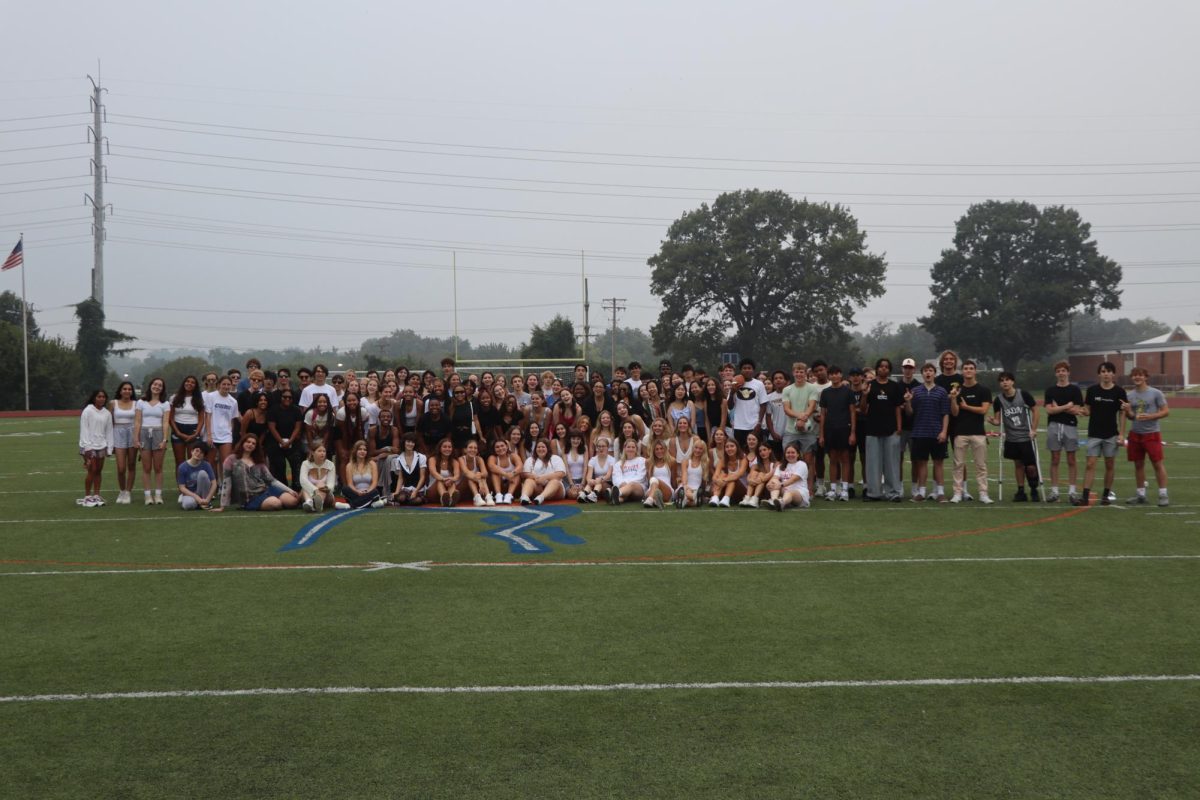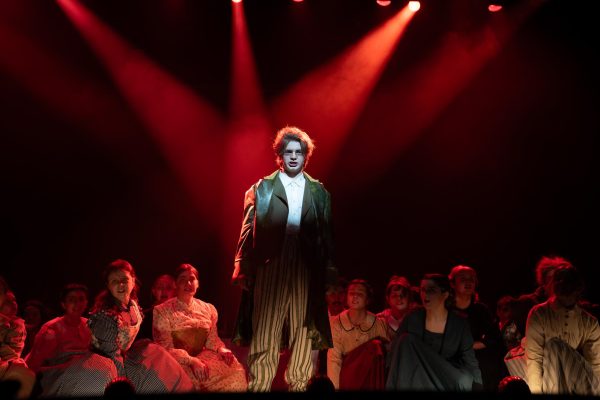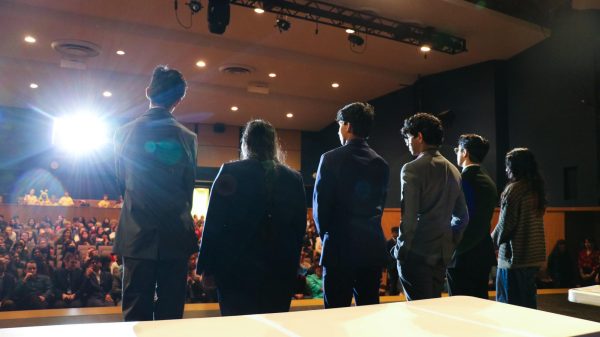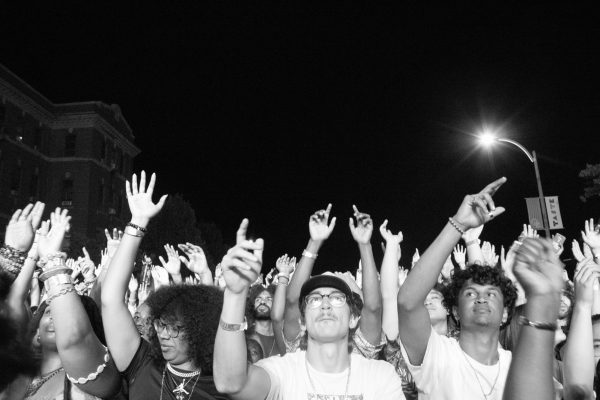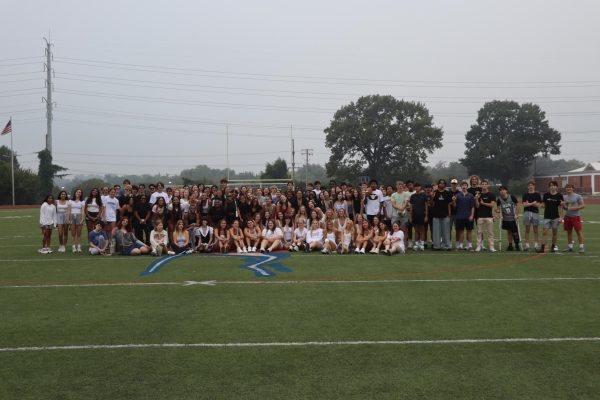Community of Compassion
December 3, 2014
Cancer is growing increasingly prevalent in the world as a whole, and, consequently, in the CHS community. Although people often prefer to keep their family’s health history private, it is important to remember that many students and teachers have, are and will continue to be affected by this disease. Overwhelmingly, those affected by cancer have been touched by the kindness and generosity of the members of the Clayton community.

Paul Hoelscher, CHS History Teacher
“My wife had gone in for a mammogram. They said ‘there’s something there, but don’t worry about it,’ and she worried about it,” CHS history teacher Paul Hoelscher said.
In February of 2014, Shannon Hoelscher, wife of CHS teacher Paul Hoelscher, was diagnosed with breast cancer after a mammogram following a previous, inconclusive test.
After having a double mastectomy, Shannon Hoelscher as well as her husband decided to have genetic testing done at Washington University.
“Now with the amazing work that has been done at Wash U, they can decode your DNA to the level of making some predictions about future chances,” Hoelscher said.
Unfortunately, the doctors discovered something that worsened the already tragic situation. Shannon Hoelscher had a genetic mutation that severely increased the likelihood that the cancer would recur in her body.
“Her specific genetic mutation is influenced by, affected by [and] connected to estrogen in the female body organs,” Hoelscher said. “She had surgery in March. Then this summer, she went through a series of additional elective surgeries connected to female organs to try to stop all estrogen production.”
Hoelscher, being a father of two daughters ages 9 and 11, has had responsibilities for his family during his wife’s illness that changed his focus much more towards his family.
“Not that I wasn’t a good father,” Hoelscher said, “but I think it was probably a little more of a split, or I kind of took for granted cooking, cleaning, picking up the kids.”
Hoelscher also is very thankful for the teachers in the District, as well as the administration for giving him the time he needed to be with his wife.
“[The staff] brought meals, they brought gift certificates, those sorts of things on a broad level,” Hoelscher said. “People were understanding in the spring. I still came to work, but I didn’t do as much on the K-12 coordinator thing, and people were okay with that.”
Hoelscher also decided to tell his students about his wife’s condition.
“[I] waited until the surgery basically to tell them, and then when I came back I think the majority of my students — you can only ask so much of sophomores — but the majority of my students I think were pretty understanding and pretty supportive throughout the whole thing,” he said.
Not only have these tragic circumstances given Hoelscher a different outlook on the needs of his family, but on life as well.
“I think that it has made me a lot more grateful for a lot of things in life,” Hoelscher said, “and health being one of those.”
Jennifer Adams, CHS Science Teacher

In June of 2013, uncharacteristic behavior by eighth grader Griffin Adams led his mother, CHS physics teacher Jennifer Adams, to take him to his pediatrician at Cardinal Glennon Children’s Hospital.
“I noticed his sleep pattern was different, he was having trouble excessively sweating, and some other things that I knew were just abnormal,” Adams said. “I tried to explain that to the doctor and he kind of just brushed me off.”
When the symptoms persisted, Adams pursued a second opinion. Unfortunately, scheduling an appointment with a specialist can take months, “unless you have a problem that’s urgent, and in need of immediate attention,” Adams said. With Griffin, the doctors did not believe that to be the case.
However, in September of 2013, after undergoing blood tests and ultrasounds and seeing various specialists, a malignant tumor was found in Griffin’s testicle, and he was diagnosed with cancer.
“I don’t know if it had been growing aggressively, during that time that we’d been waiting to see the doctor, or if nobody had really checked thoroughly,” Adams said. “There’s not really any blame that I’m placing on doctors, [the endocrinologist] was just the first person that found it.”
The next few months were a whirlwind for the Adams family. Griffin had surgery to remove the tumor and a test of his lymph nodes brought further bad news to the family.
“It wasn’t local, it was regional,” Adams said, “and it had spread far enough that it increased his staging.”
Griffin received 24 weekly rounds of chemotherapy and a month and a half of daily radiation, yet his condition continually worsened.

“Sort of like if somebody hits you when you’re down, you never come back up,” Adams said. “For every subsequent chemotherapy treatment that he had, he had never quite recovered from the last one.”
For Adams, it was impossible to teach full-time and take care of her son. Adams needed to be with Griffin throughout his treatment, so she took several months off from her position.
“I am so grateful that the District supported that,” she said.
Meanwhile, Paul Mollinger took over her classroom. Mollinger, whose sister had breast cancer, is retired and was interested in the experience of teaching, not the financial compensation.
“That really made a difference for the physics students in my class, because there wasn’t somebody here that was just clocking in and clocking out, it was somebody here that really cared about the job,” Adams said. “That meant a lot to me too, because I knew that there was somebody here that really cared for [the students] the way that I cared for them.”
Teachers also helped the family by dropping meals off weekly to her house and looking out for her other son, Gage. Then a freshman, Gage kept busy with the soccer team and school in order to escape what was going on at home.
“It was just good for him to stay as normal as he possibly could, with friends and people that supported him,” Adams said. “Gage is a really strong person.”
Then, on April 10, 2014, Griffin went into remission.
“He turned out fine,” Adams said. “It was all worth it. All of the sickness, all of the horrible nosebleeds and nausea and vomiting and everything else that went along with it, it ended up being all worth it.”
Although Griffin’s months with cancer were like nothing she has ever seen or experienced before, Adams is not resentful of the journey.
“I got to spend a lot of time with my son, and I don’t regret that,” Adams said. “In the end, my family is stronger than we were before. Everyone is affected in a different way. I am, and I know [Griffin] is, too.”
Olivia Joseph, CHS freshman

“When she said that she was going to go into the hospital to get it checked, the first thing I said was, ‘Could it be cancer?’ and she said no, because nobody thought it could be,” freshman Olivia Joseph said.
In early December of 2011, Ilene Joseph, Olivia’s mother, went to the hospital to check on a cold that had persisted for an unusually long time. What was found instead was pneumonia, as well as lung cancer.
Ilene went through chemotherapy, but the disease got progressively worse through the remainder of 2011 and into 2012. Olivia was in 6th grade at the time, and, to her, her life seemed fairly normal.
“She wasn’t acting like she was really sick, so it was hard to believe that she was,” Olivia said.

The effects of the cancer became more prominent as the disease progressed. Although Olivia did not notice many significant changes during the school year, except the symptoms caused by the chemotherapy treatment, the intensity of the disease was heightened in the summer months.
“Towards the end she couldn’t get up and down stairs, and the last few days she couldn’t really breathe. She was wheezing every time she would breathe,” Olivia said. “I knew that she was getting significantly worse but I just couldn’t really get myself to believe that it was that bad.”
In August of 2012, Ilene passed away.
“I went [to see her] at the end,” Olivia said. “I didn’t really want to, but I still did.”
The loss of their mother, although gradual, affected each member of the Joseph family uniquely. Meredith, Olivia’s older sister, entered her senior year of high school soon after her mother’s death, while Ethan, a college student, took a semester off to cope with Ilene’s death.
“They just dealt with it differently,” Olivia said.
For Olivia, her friends and teachers in the Clayton community were a source of support at the time. Since then, however, the topic of her mother has become more difficult to breach than ever.
“I think people just forgot about it, or think that I’m really sensitive to it. Nobody really talks about it anymore,” Olivia said. “I need to talk about it, and that’s what friends are there for, but I think they don’t really know what to do.”
Although Olivia’s friends were more apt to talk to her about her mother immediately following her death, the pain Olivia feels over the death of her mother has not diminished with time.
“The fact that she’s gone hasn’t changed throughout the time that she has been [gone],” Olivia said.
Even with the absence of her mother, Olivia has come to acquire a positive outlook on life and a new awareness of the world around her.
“It was kind of awakening,” Olivia said. “[I’m] being more grateful, not taking everything for granted and not complaining as much about little things that happen to everybody. It was life-changing.”





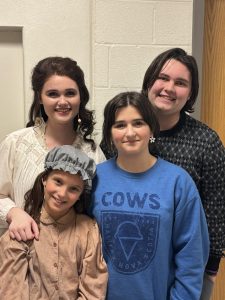






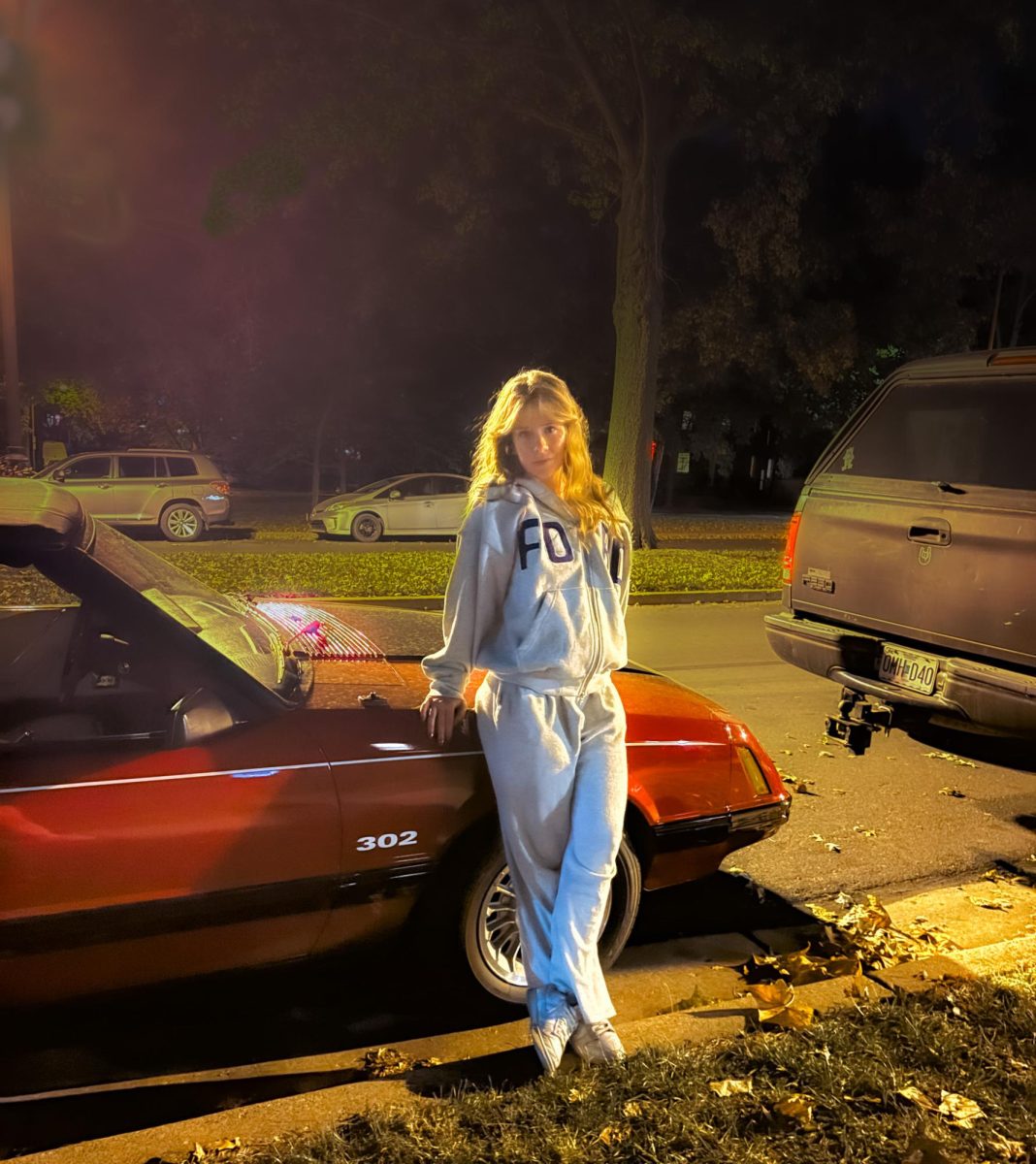
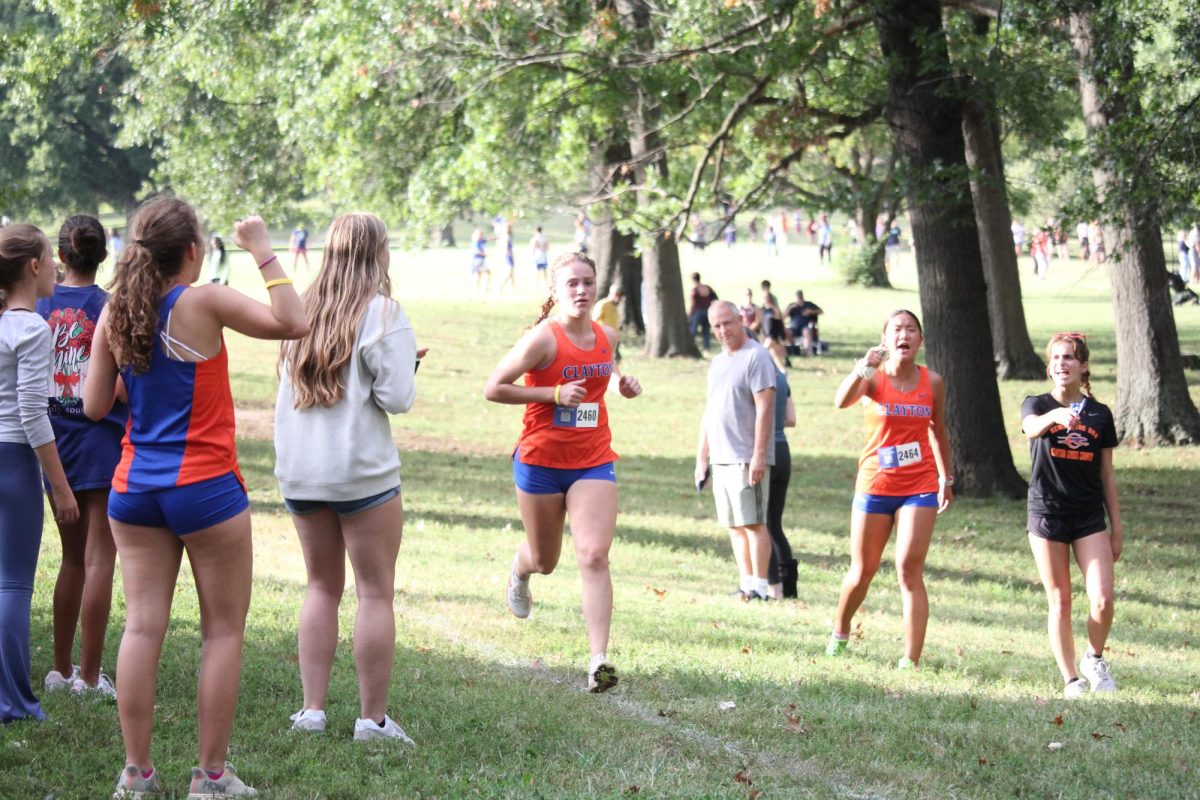


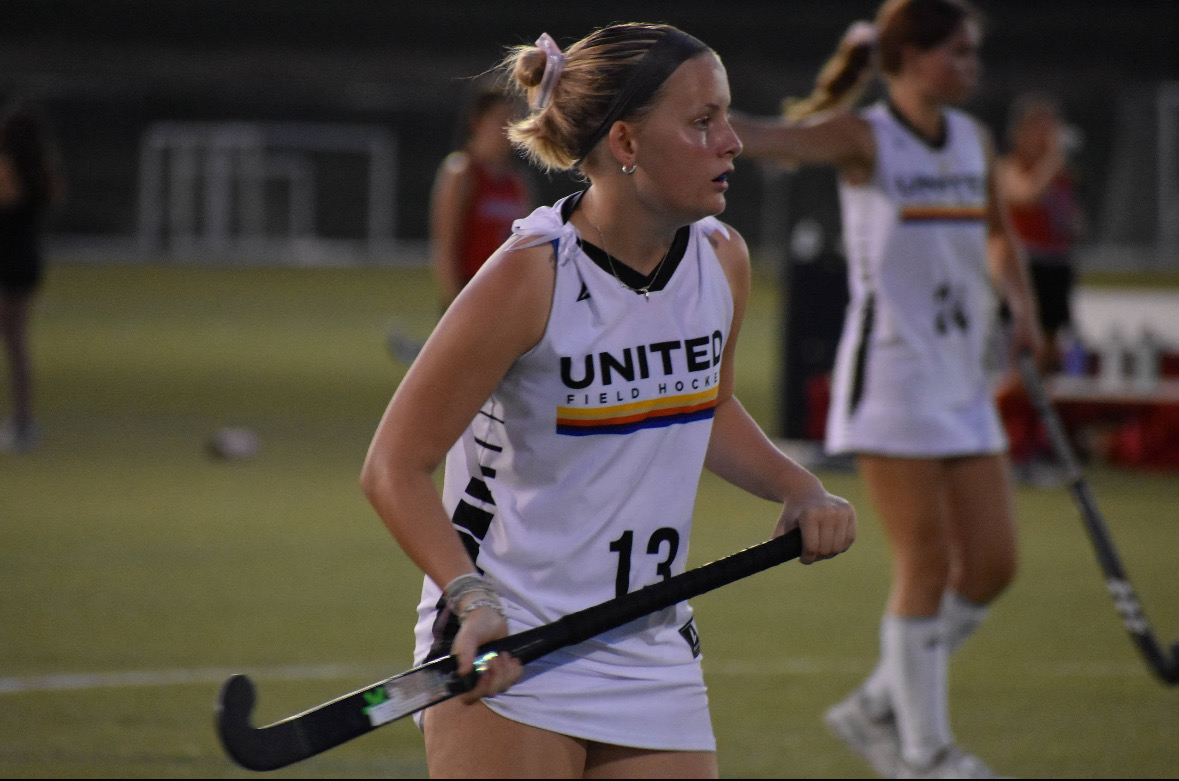
![Rowing Club teammate Audrey Burger poses next to Juliette Springer at the Haxton Ohio race. The team placed sixth out of 16; in the previous race, they placed fourth. "[After] the race was over, I felt very relieved because of how nervous I was before the race. I also felt proud because I did better then I thought I was going to do," Springer said.](https://www.chsglobe.com/wp-content/uploads/2024/12/IMG_7938-1.jpg)
